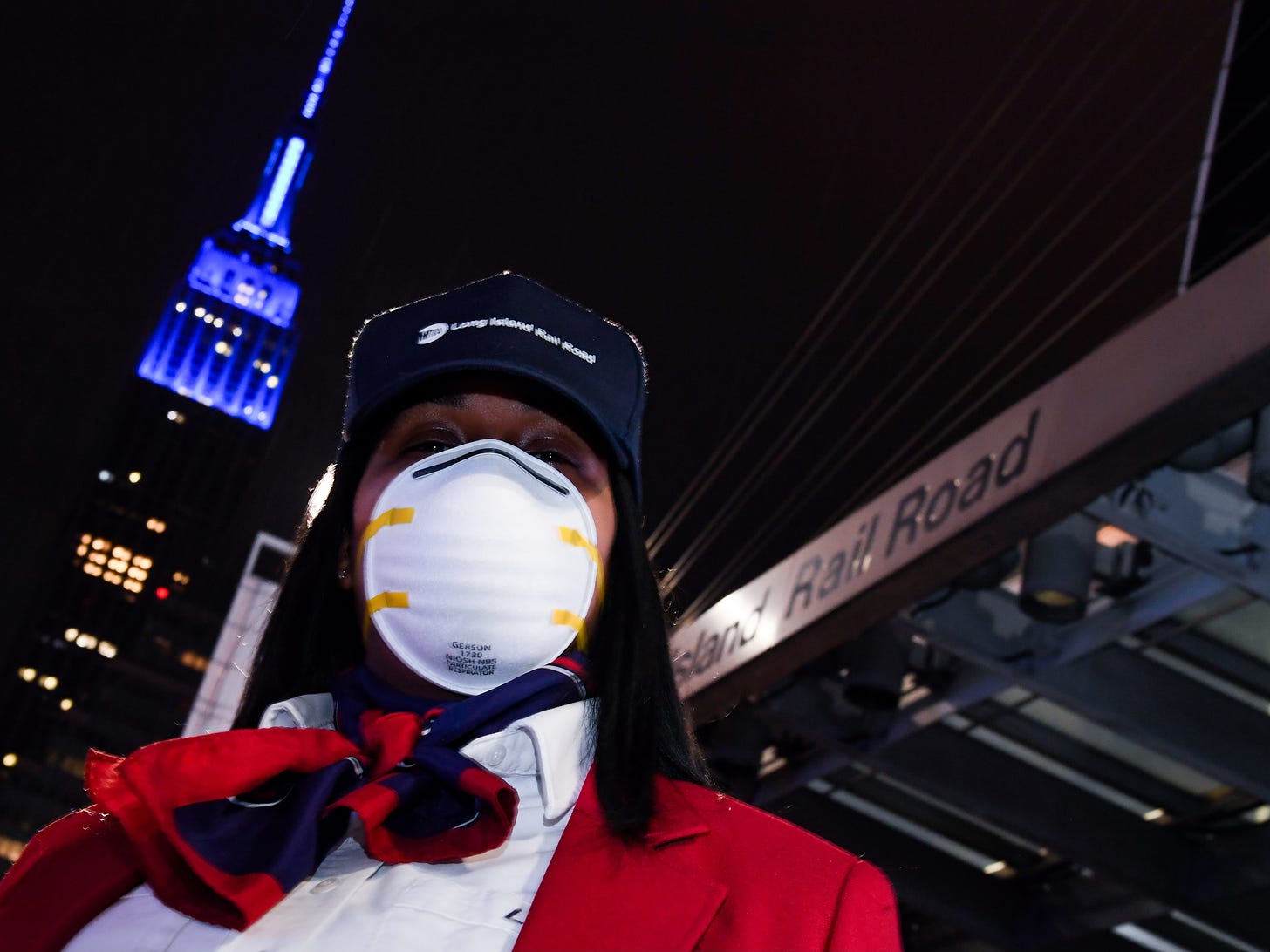
The first cases of Covid-19 were diagnosed in late December 2019, near a lab in Wuhan, China that may or may not have been responsible for accidentally releasing the virus into the wild.
The disaster that took shape around the world in the following weeks was like watching someone fall from a skyscraper in slow motion. The first case of Covid-19 in the United States was diagnosed on January 20, 2020. But even though there had been three weeks to make contingency plans to defend against a fast-moving and deadly virus, the White House seemed almost paralyzed. Donald Trump, consumed with his reelection campaign, did not declare the public health emergency that gave his administration broad powers to act until January 31.
Trump, of course, believed that a wall stretching from the Pacific Ocean to the Gulf of Mexico would keep undocumented immigrants from crossing the southern border. So, in retrospect, it makes sense that he rolled out only one major policy response in the next five weeks: he stopped travel from China.
This neither stopped the spread of a virus that was already in the United States, nor did it keep out infected travelers from other countries. By the time Trump allocated $8.3 billion for emergency health care on March 6, and declared a national emergency on March 13, there were 2,000 known infections and 41 deaths. Health care workers were starting to work double shifts; six states had closed their schools to prevent spread; and the New York Times predicted that as many as 2.4 million Americans could soon be competing for 925,000 hospital beds.
New York City was an early epicenter, and everything fell apart on March 20.
We all know what happened next. People who could leave cities did. Medical and nursing schools graduated their classes early and sent young health care workers into the hospitals to support already fatigued staffs. Students attended school, as best they could, online. Amazon and food delivery orders went through the roof. And work, if you still had it, became very complicated. Some non-essential workers were sent home to work online, and others were laid off and left to fend for themselves. Essential workers had to keep working, no matter what. Often the poorest and most vulnerable among us, they were constantly exposed to the virus with little or no protection.
Who would, or would not, physically survive the pandemic was one question, but economic survival was part of that equation. And the divisions between us initially crystalized around which laid off workers had access to the social safety net. W-2 workers were eligible for unemployment: they paid social security taxes every month. But 1099 workers, a growing category of contingent laborers who work as independent contractors, were not.
Then, there are other divides that crosscut the 1099 category: people who worked in bricks and mortar businesses and those whose labor was contracted through platforms like Uber, Lyft, Airbnb, TaskRabbit, and Instacart—gig workers who made an income with their own vehicles, tools, homes, and hustle. There were people who still had jobs, others who had worked several jobs and lost a few of them, and some who suddenly lost all of their income.
As the world of work sagged and collapsed, University of North Carolina sociologist and W-2 worker Alexandrea Ravenelle decided to document this economic shock in real time. Ravenelle had just published Hustle and Gig: Struggling and Surviving in the Sharing Economy (University of California Press, 2019.) She jumped on social media to locate and interview precarious, or suddenly precarious, workers about their survival strategies. Ravenelle listened as people told her how they navigated government programs, avoided scams and predators, and balanced multiple jobs. She found out how a sudden infusion of money--$1000 a week—could create the mental and economic space for a worker to rethink, re-set, and plan their life.
And Ravenelle learned that a universal basic income (UBI), regular cash payments that underwrite a humane standard of living, could work to lift people out of poverty. Contrary to conservative economic theories that position government stipends as a disincentive to labor, Ravenelle’s research illustrates a graphic truth: even after a government check took care of their basic needs, people wanted to work. In a crisis, it gave their lives meaning and purpose. But it also, in some cases, freed them from work long enough to figure out how to live sustainably and with less stress.
The result was Side Hustle Safety Net: How Vulnerable Workers Survive Precarious Times (University of California, 2023), a book that both illustrates the holes in our safety net and shows us how to fix them.
Show notes:
The delays in unemployment compensation that Alexandrea discusses, and that pushed Americans into gig labor, were still being reported in July 2021, although they were much shorter.
Being a “public charge” has always been an aspect of immigration law, but in February 2020, the Trump administration tightened those rules further. This is one reason why, as Alexandrea explains, many legal immigrants did not apply for unemployment during the pandemic.
Claire mentions the fear that even documented immigrants might have had about deportation. Currently, the Biden administration is reviewing the cases of thousands of such people who claim to have been unjustly deported under the Trump presidency.
Listeners who are interested in the history of unemployment insurance since it was instituted by Franklin Delano Roosevelt in 1937 may wish to consult Kirsten Downey, The Woman Behind the New Deal: The Life and Legacy of Frances Perkins, Social Security, Unemployment Insurance (Anchor Books, 2020.)
Claire and Alexandrea discus the CARES Act, a $2.2 trillion stimulus law passed by a Democratic Congress in March, 2020; it was enhanced by a second $900 billion package in December of that year.
Alexandrea cites Princeton sociologist Viviana Zelizer’s work on the culture of economic life.
Claire mentions Elizabeth Warren’s common sense analysis of how the gig economy pressures individuals, and even whole families. Interested listeners may want to read Warren’s This Fight Is Our Fight: The Battle To Save Working People (Metropolitan Books, 2018.)
Claire and Alexandrea discuss Universal Basic Income. One good source on this is journalist Annie Lowrey, Give People Money: How a Universal Basic Income Would End Poverty, Revolutionize Work, and Remake the World (Crown, 2018.)
As Alexandrea notes, millions of Americans work at least two jobs; in October 2023, that was 8.3 million workers, the highest number since the beginning of the pandemic.
And here’s a bonus: all new annual subscriptions include a free copy of my book about political media, Political Junkies: From Talk Radio to Twitter, How Alternative Media Hooked Us on Politics and Broke Our Democracy (Basic Books, 2020.)
If you enjoyed this episode, why not try:
Episode 22, Hit Them In The Pocketbook: A conversation with Annelise Orleck about her book, "Storming Caesars Palace: How Black Mothers Fought Their Own War on Poverty"
Episode 21, A World To Win: Talking with socialist feminist Nancy Fraser about her book, "Cannibal Capitalism: How our System Is Devouring Democracy, Care, and the Planet – and What We Can Do About It"
Episode 7, You Can Never Be Too Rich or Too Thin: A conversation with historian Natalia Mehlman Petrzela about her new book, "Fit Nation: The Gains and Pains of America's Exercise Obsession"
You can download this podcast here or subscribe for free on Apple iTunes, Spotify, Google Podcasts, or Soundcloud. You can also keep up with Political Junkie content and watch me indulge my slightly perverse sense of humor on Instagram, Threads, and TikTok.


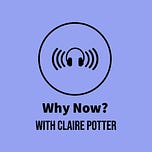




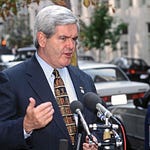
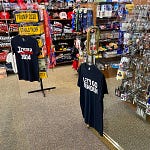

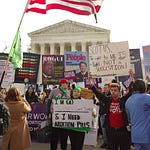
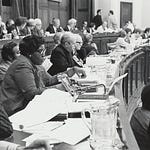

Share this post